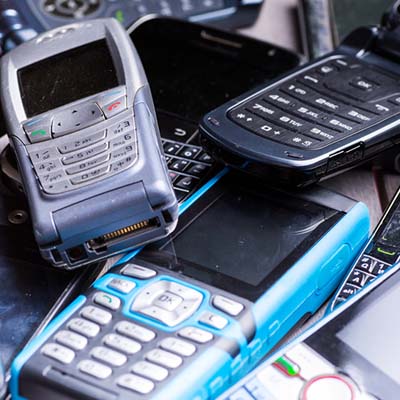In computer technology things change fast. Both software and hardware rapidly become redundant. So you upgrade. It’s not long before you’re left with a stack of stuff cluttering up your office: devices, CDs, cables and other paraphernalia. When discarding technology don’t just dump it in the trash.
It’s not just ordinary junk though. The Environmental Protection Agency classifies it as ‘hazardous household waste.’ Many US states, as well as the European Union, also have regulations about disposing of electronics.
There are two important reasons for discarding technology carefully. Because computer components are really bad for the environment they need to be disposed of responsibly. For your own good, you don’t want to put your data at risk. The chances of someone going through your tech trash and retrieving it may be small, but a comprehensive data protection and security strategy is crucial for any business.
Related: Read our post on Corporate Responsibility on E-Waste
Hazardous Chemicals & E-Waste
Computers and peripherals are full of toxic materials that are damaging to the environment. Many are also carcinogenic. Heavy metals like lead, mercury and cadmium are top of the list, but it doesn’t end there. Lithium batteries are another major concern.
If unwanted computer goods are just dumped and sent to landfill then the hazardous substances they contain can leach out into the soil and water supply. That’s only one step away from entering the food chain. Even less toxic substances are bad for the planet. Plastic, widely used in casings for computers, printers and monitors, is now recognized as a serious pollutant.
Dealing With Sensitive Data
You probably think that cybercriminals lurk online and won’t be prowling around your local dumpster. Even if your data doesn’t seem to be sensitive it’s still smart to make sure no-one can get hold of it. Almost everyone has some personal information somewhere on their systems, which can be used for identity theft. Businesses have an added duty to their clients to keep their data confidential.
Ideas for Tech Disposal and Repurposing
If you need to discard old electronic goods and computers then recycling is the way to go. There are several options to consider.
Plenty of firms specialize in recycling electronics and computer equipment. They can retrieve the valuable components for re-use and get rid of the remainder without putting people or the environment at risk.
Donate your old technology. Schools and charities can find new homes for old computers that can still perform basic tasks, even if they’ve outlived their usefulness for your business. Remember that removing all the data from the device is especially crucial if you’re handing over a computer that will be reused instead of dismantled.
Check whether you can reuse your old hardware yourself. If it can be upgraded, you might save some money and limit your carbon footprint at the same time. A spare computer is always useful as a backup, even if it can’t perform the full range of tasks that your business uses every day.
If you need assistance changing over to new devices, and discarding technology you don’t need, then reach out to Quikteks. We can ensure that you have the solutions you need for success, without putting your security in jeopardy. Call us at (973) 882-4644 to learn more.

